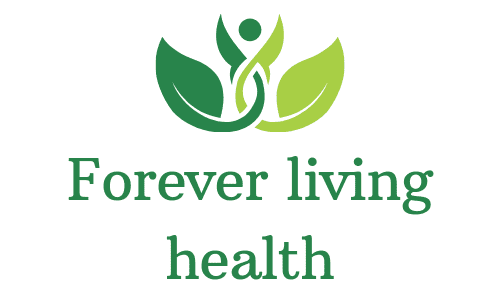Outline of the Article:
Introduction to Holistic Health
- What is holistic health?
- Brief history of holistic health practices.
Components of Holistic Health
- Physical health
- Mental health
- Emotional health
- Spiritual health
Benefits of Holistic Health Practices
- Improved overall well-being
- Prevention of diseases
- Enhanced quality of life
Key Holistic Health Practices
- Nutrition and diet
- Exercise and movement
- Stress management techniques
- Mindfulness and meditation
Alternative Therapies in Holistic Health
- Acupuncture
- Ayurveda
- Homeopathy
- Herbal medicine
Holistic Approaches to Common Health Issues
- Chronic pain management
- Anxiety and depression
- Insomnia
- Digestive disorders
Holistic Health and Traditional Medicine
- Integrative medicine
- Collaboration between holistic practitioners and conventional doctors
Holistic Health in Daily Life
- Creating a holistic lifestyle
- Incorporating holistic practices into daily routines
Challenges and Misconceptions
- Lack of scientific evidence
- Skepticism from mainstream medicine
- Misunderstanding of holistic principles
Success Stories
- Personal testimonials
- Case studies showcasing the effectiveness of holistic approaches
Holistic Health Trends
- Rise in popularity of holistic practices
- Influence on mainstream health and wellness industries
Holistic Health Resources
- Books
- Websites
- Workshops and retreats
Holistic Health and Sustainability
- Connection between personal health and environmental well-being
- Eco-friendly practices in holistic living
Holistic Health for Different Age Groups
- Children and holistic health
- Holistic practices for adults
- Holistic aging and elderly care
Conclusion
- Recap of holistic health benefits
- Encouragement to explore holistic practices for overall well-being

Enhancing Well-being Naturally
Holistic health is a comprehensive approach to well-being that considers the interconnectedness of the body, mind, emotions, and spirit. Not at all like customary medication, which frequently centers exclusively around treating side effects, comprehensive wellbeing underlines the significance of tending to the main drivers of ailment and advancing by and large equilibrium and congruity inside the person.
Introduction to Holistic Health
What is holistic health?
Holistic health is a philosophy that views health as a dynamic state of balance in which the whole person—body, mind, emotions, and spirit—is functioning optimally. It takes into account the interconnectedness of all aspects of a person’s life and recognizes the importance of treating the individual as a whole rather than focusing solely on specific symptoms or diseases.
Brief history of holistic health practices
Holistic health practices have roots in ancient healing traditions from cultures around the world, including Ayurveda, Traditional Chinese Medicine, and Native American healing practices. In recent decades, holistic health has gained popularity as people seek alternatives to conventional medical treatments and embrace more natural and holistic approaches to health and wellness.
Components of Holistic Health
Physical health
Physical health encompasses the body’s physical well-being, including aspects such as nutrition, exercise, sleep, and regular physical examinations.
Mental health
Mental health refers to a person’s cognitive and emotional well-being, including their ability to cope with stress, manage emotions, and maintain healthy relationships.
Emotional health
Emotional health involves understanding and expressing one’s emotions in a healthy and constructive manner, as well as developing resilience and coping strategies to deal with life’s challenges.
Spiritual health
Spiritual health relates to a person’s sense of purpose, meaning, and connection to something greater than themselves. It involves exploring questions of identity, values, and beliefs, and cultivating a sense of inner peace and fulfillment.
Benefits of Holistic Health Practices
Improved overall well-being
By addressing the physical, mental, emotional, and spiritual aspects of health, holistic practices promote a sense of wholeness and balance, leading to improved overall well-being.
Prevention of diseases
Holistic health practices focus on prevention rather than just treatment, helping to identify and address imbalances in the body before they develop into more serious health problems.
Enhanced quality of life
By promoting healthy lifestyle habits and addressing underlying imbalances, holistic health practices can enhance the quality of life and contribute to greater vitality, resilience, and longevity.
Key Holistic Health Practices
Nutrition and diet
Nutrition plays a crucial role in holistic health, providing the body with essential nutrients and energy while supporting optimal functioning of all bodily systems.
Exercise and movement
Regular physical activity is essential for holistic health, helping to strengthen the body, improve cardiovascular health, boost mood, and reduce stress.
Stress management techniques
Stress management techniques such as meditation, deep breathing exercises, yoga, and tai chi can help reduce stress levels and promote relaxation and inner peace.
Mindfulness and meditation
Mindfulness and meditation practices cultivate present-moment awareness and can help reduce anxiety, depression, and other mental health issues while promoting a sense of calm and well-being.
Alternative Therapies in Holistic Health
Acupuncture
Needle therapy is a conventional Chinese medication practice that includes embedding slender needles into explicit focuses on the body to invigorate energy stream and advance recuperating.
Ayurveda
Ayurveda is an ancient Indian healing system that focuses on balancing the body’s three doshas—vata, pitta, and kapha—through diet, lifestyle, herbal remedies, and other holistic therapies.
Homeopathy
Homeopathy is a natural healing system based on the principle of “like cures like,” where highly diluted substances are used to stimulate the body’s natural healing processes.
Herbal medicine
Herbal medicine utilizes plant-based remedies to promote health and treat a wide range of ailments, often drawing on traditional knowledge and indigenous healing practices.
Holistic Approaches to Common Health Issues
Chronic pain management
Holistic approaches to chronic pain management may include acupuncture, chiropractic care, massage therapy, herbal medicine, and mind-body techniques such as meditation and guided imagery.
Anxiety and depression
Holistic approaches to anxiety and depression may involve psychotherapy, cognitive-behavioral therapy, relaxation techniques, herbal remedies, and lifestyle modifications such as exercise and nutrition.
Insomnia
Holistic approaches to insomnia may include establishing a regular sleep schedule, creating a relaxing bedtime routine, practicing relaxation techniques, and addressing underlying stress or anxiety.
Digestive disorders
Holistic approaches to digestive disorders may include dietary changes, herbal remedies, probiotics, acupuncture, and stress management techniques to support digestive health and balance gut flora.
Holistic Health and Traditional Medicine
Integrative medicine
Integrative medication consolidates regular clinical medicines with corresponding and elective treatments to address the physical, close to home, and profound parts of well being and mending.
Collaboration between holistic practitioners and conventional doctors
Collaboration between holistic practitioners and conventional doctors can provide patients with a comprehensive approach to health care, incorporating the best of both conventional and holistic therapies.
Holistic Health in Daily Life
Creating a holistic lifestyle
Creating a holistic lifestyle involves making conscious choices that support health and well-being in all areas of life, including diet, exercise, sleep, stress management, relationships, and personal growth.
Incorporating holistic practices into daily routines
Incorporating holistic practices into daily routines can be as simple as practicing mindfulness while eating, taking regular breaks to stretch and breathe deeply, or spending time in nature to recharge and rejuvenate.
Challenges and Misconceptions
Lack of scientific evidence
One challenge facing holistic health is the perception that many holistic practices lack scientific evidence to support their effectiveness, despite growing research in areas such as mind-body medicine, nutrition, and acupuncture.
Skepticism from mainstream medicine
Holistic health practices are sometimes met with skepticism or resistance from mainstream medical professionals who may not fully understand or appreciate the value of these approaches.
Misunderstanding of holistic principles
There is often a misunderstanding of holistic principles, with some people equating holistic health with New Age spirituality or alternative medicine practices that may lack scientific validity.
Success Stories
Personal testimonials Many people have experienced profound transformations in their health and well-being through holistic practices, sharing inspiring stories of healing and recovery.
Case studies showcasing the effectiveness of holistic approaches Numerous case studies and research trials have demonstrated the effectiveness of holistic approaches in treating a wide range of health conditions, from chronic pain and autoimmune disorders to mental health issues and lifestyle-related diseases.
Holistic Health Trends
Rise in popularity of holistic practices Holistic health practices are becoming increasingly popular as people seek alternatives to conventional medical treatments and embrace more natural and holistic approaches to health and wellness.
Influence on mainstream health and wellness industries The influence of holistic health can be seen in the growing popularity of organic and natural products, the rise of integrative medicine clinics, and the incorporation of holistic principles into mainstream health and wellness programs.
Holistic Health Resources
Books There are countless books available on holistic health, covering topics ranging from nutrition and herbal medicine to mindfulness and spiritual growth.
Websites Numerous websites provide valuable resources on holistic health, offering articles, videos, podcasts, and online courses on various holistic practices and therapies.
Workshops and retreats Attending workshops and retreats can provide opportunities to learn from holistic health experts, connect with like-minded individuals, and deepen one’s understanding and practice of holistic living.
Holistic Health and Sustainability
Connection between personal health and environmental well-being Holistic health recognizes the interconnectedness of personal health and environmental well-being, promoting practices that are not only good for individual health but also sustainable for the planet.
Eco-friendly practices in holistic living Holistic living often involves adopting eco-friendly practices such as eating organic foods, reducing waste, conserving energy, and supporting sustainable agriculture and local communities.
Holistic Health for Different Age Groups
Children and holistic health Holistic health practices can benefit people of all ages, including children, by promoting healthy habits, emotional resilience, and a strong foundation for lifelong well-being.
Holistic practices for adults For adults, holistic health practices can support healthy aging, stress management, disease prevention, and overall vitality and longevity.
Holistic aging and elderly care In later life stages, holistic approaches to aging and elderly care focus on promoting independence, quality of life, and holistic well-being through supportive services, social connections, and personalized care.
Conclusion
In conclusion, holistic health offers a comprehensive approach to well-being that addresses the physical, mental, emotional, and spiritual aspects of health. By incorporating holistic practices into daily life, individuals can experience improved overall well-being, enhanced quality of life, and a greater sense of balance and harmony. Whether through nutrition and diet, exercise and movement, stress management techniques, or alternative therapies, there are many ways to embrace holistic health and cultivate a vibrant and fulfilling life.
Unique FAQs:
What makes holistic health different from traditional medicine? Holistic health takes a more comprehensive approach to health and wellness, addressing the whole person—body, mind, emotions, and spirit—rather than just focusing on specific symptoms or diseases.
Are holistic health practices supported by scientific evidence? While some holistic practices may lack robust scientific evidence, there is growing research supporting.

1 thought on “Holistic Health Practices”